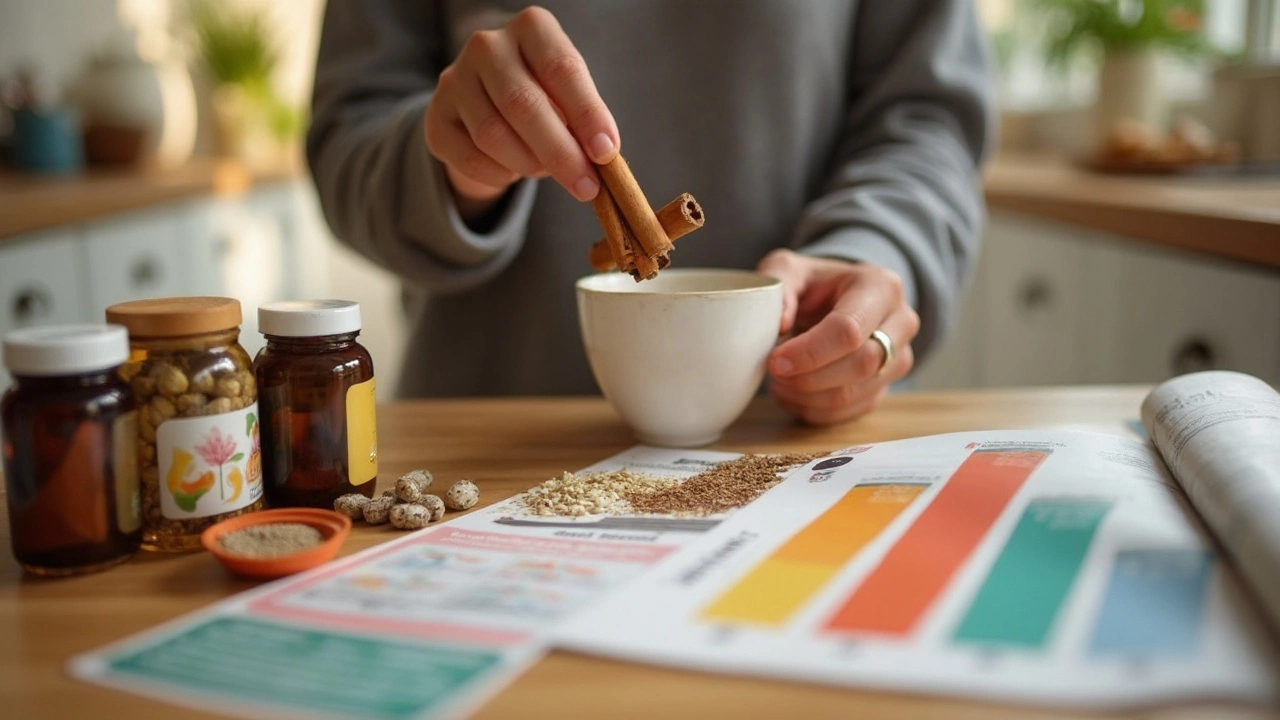Fenugreek: What It Does, How to Use It, and What to Watch For
Ever tried a spice that smells like maple syrup and also shows up in supplements? That’s fenugreek. People use fenugreek seeds and leaf extracts for blood sugar control, boosting milk supply, and as a culinary spice. Here I cut to the useful stuff: what works, how to take it, and when to be careful.
Practical benefits you can expect
Fenugreek seed contains fiber and compounds called saponins and alkaloids. Small clinical trials have shown it can lower fasting blood sugar and improve insulin response when taken daily. Nursing moms sometimes see a measurable increase in milk volume after a few days on fenugreek — several trials used a few grams of seed per day. People also report improved libido or energy, but the evidence there is mixed and less consistent.
If you love cooking, using fenugreek in curries or stews adds a warm, slightly bitter note. Toasted seeds give more aroma; fresh leaves (methi) are common in South Asian dishes and are mild and tasty.
How to use it and common doses
Supplements: Most capsules contain 500–610 mg of fenugreek seed. A common approach is 500 mg to 1,000 mg taken twice daily. Whole seeds: 1–2 teaspoons (roughly 2–6 grams) a day is a typical culinary or mild therapeutic amount. Teas and extracts vary in strength — follow the label or your clinician’s advice.
For blood sugar support, some studies used higher seed doses (around 5–10 g daily). For increasing breast milk, practical doses reported by users are in the 2–6 g daily range. Start low and judge how your body reacts, especially if you take other drugs.
Want to try it in food? Soak seeds overnight and add to salads, grind them into spice blends, or stir a pinch into soups. If you use extracts, mix per label instructions.
Side effects are usually mild. Expect a maple-like body or urine odor for some people, plus possible gas, bloating, or diarrhea. Rarely, fenugreek can cause allergic reactions, especially if you’re sensitive to peanuts or chickpeas.
Watch out if you have diabetes — fenugreek can lower blood sugar further and may need drug adjustments. If you take blood thinners, check with your doctor because fenugreek can affect clotting markers in some people. Pregnant women should avoid high doses; fenugreek can stimulate uterine activity in large amounts.
Where to buy: whole seeds at grocery stores, fresh leaves at ethnic markets, and standardized supplements from reputable brands online. Pick products with clear dosing and third-party testing when possible.
Bottom line: Fenugreek can help with blood sugar and milk supply for some people and makes a flavorful spice. Use common-sense doses, watch for side effects, and talk to your healthcare provider if you’re on meds or pregnant.

Best Herbal Metformin Alternatives: Cinnamon, Fenugreek & More for Blood Sugar Control
This article dives deep into the clinical evidence behind using common botanicals like cinnamon and fenugreek as natural alternatives to Metformin for managing blood sugar. It unpacks the science, real-world experiences, and useful tips on effective herbal supplements, and guides readers through what to expect if they're considering such substitutes. Enjoy an engaging, fact-filled read with practical advice and reliable information for anyone interested in natural glycemic control options.
- Drug Information (69)
- Health and Wellness (59)
- Pharmacy Information (23)
- Medical Conditions (22)
- Supplements (4)
- Diabetes (4)
- Travel Health (3)
- Mental Health (3)
- Heart Health (2)
- Parenting (2)
-
Thyroid Medications: How to Take Levothyroxine Right to Avoid Absorption Problems
11 Dec 2025 -
Top 7 Priligy Alternatives for Premature Ejaculation in 2024
19 Oct 2024 -
Global Generic Drug Policies: How Countries Balance Affordability and Quality
5 Feb 2026 -
Panmycin: Uses, Dosage, Side Effects and Safety Guide
21 Sep 2025 -
Azelaic Acid Benefits for Mature Skin: Anti‑Aging, Brightening & Gentle Care
19 Oct 2025

29.04.25
Alistair Mukondiwa
11